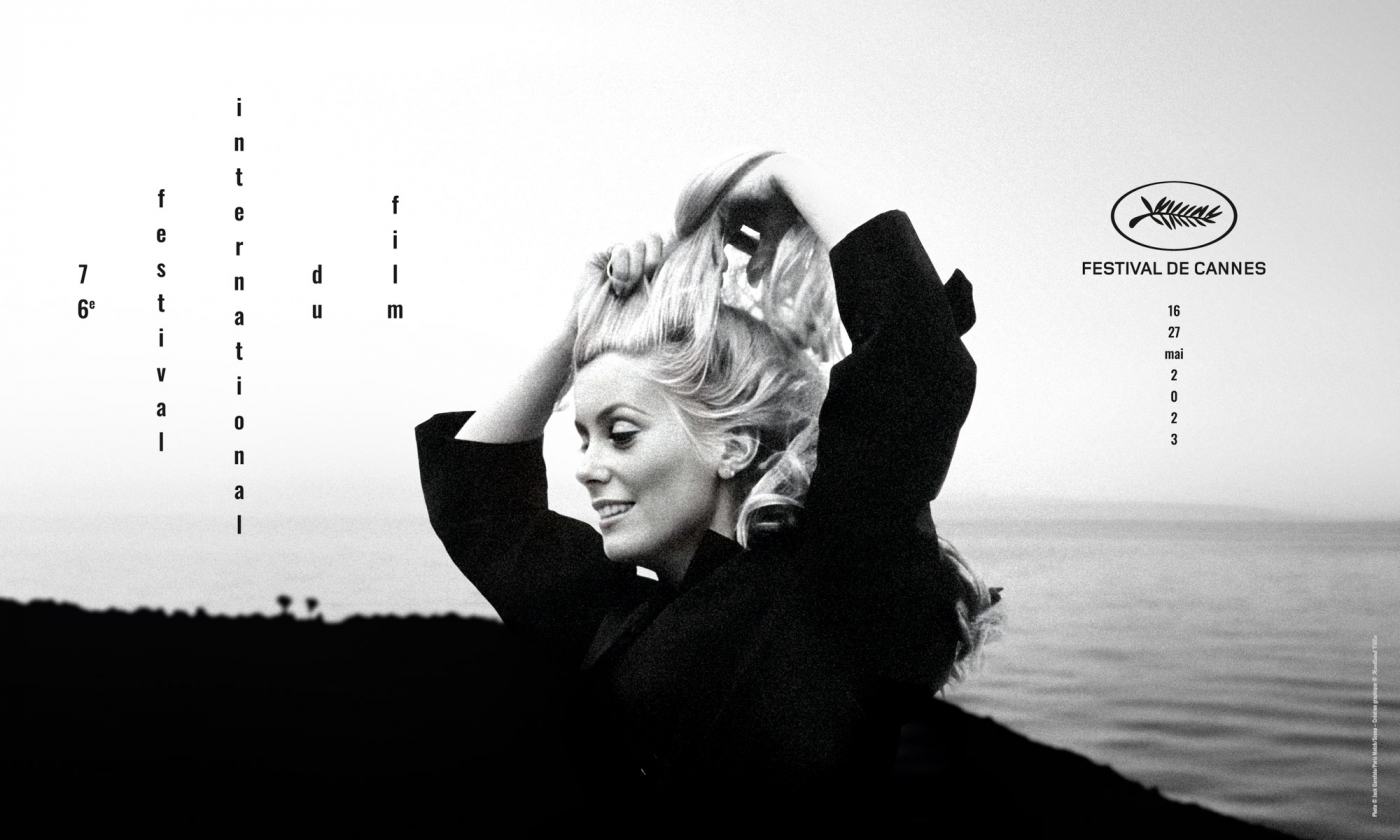
The jury is IN
The Cannes Film Festival has several juries. This year, Karen Krizanovich was on one of them

The Cannes Film Festival has several juries. This year, Karen Krizanovich was on one of them

“Every year there’s a jury at the Cannes Film Festival. Getting on the jury is very competitive in France. Not because the French love cinema, but because they love to judge,” a naughty Craig Ferguson once said. Associated mainly with the glamour of the festival’s red carpet, Cannes in real life is more like real life. Street barricades make walking, using a bike or taking a car extremely difficult. Extended families with pushchairs clog the already crowded walkways, oblivious that there are an additional 200,000 people in the small resort town. Influencers poise next to just about anything. Critics race, sweating, from one screening to another. It’s an aggressive mardi gras of long rainy, often sweltering days of little sleep and lots of baguette. Bureaucracy and snobbery rule and who gets tickets to screenings is all done by hierarchy. Take heart, though, festival goer: It’s Cannes, not you.

Karen with the jury (fourth from left), by Katharina Sartena
An endurance test I had done in previous years – including the whole of the 90s – I accepted the international film critics’ association FIPRESCI’s invitation to be one of a 9-person jury to award three prizes. In hushed tones, friends uttered, “Your badge will give you unparalleled access.” As anyone who has attended the festival knows that tickets can be impossible to get unless you have a high-ranking badge. The word “jury” and the yellow dot on my press badge did not give me superpowers. I queued in the rain and blazing sun like everyone else. But I did get screening tickets denied to others. I saw thirty titles. Some of my fellow jurors saw more. By my count, in the days between 16th-27th June, somewhere between 163 and 177 feature films were screened. No one seems to know – or care – the actual number. More were available in the film market in the basement of the Palais du Festival, a modern building from 1982 which resembles a shopping mall without shops.
As if dropped from the sky, Micheal Douglas turned up for an honorary Palme d’Or
Cannes is capricious, full of surprises and sudden announcements. Unscheduled screenings are as frequent as celebrity pop-ups. As if dropped from the sky, Micheal Douglas turned up for an honorary Palme d’Or and to screen Child Prodigy, a previously unseen documentary about his life. Less random was Harrison Ford. His sudden honorary palm of gold seemed more fitting as in half of his new film, Indiana Jones and the Dial of Destiny, he is digitally youthened. Above all, Cannes loves its stars young. This is why this year’s poster is Catherine Deneuve from 1968, not the actor in 2023.
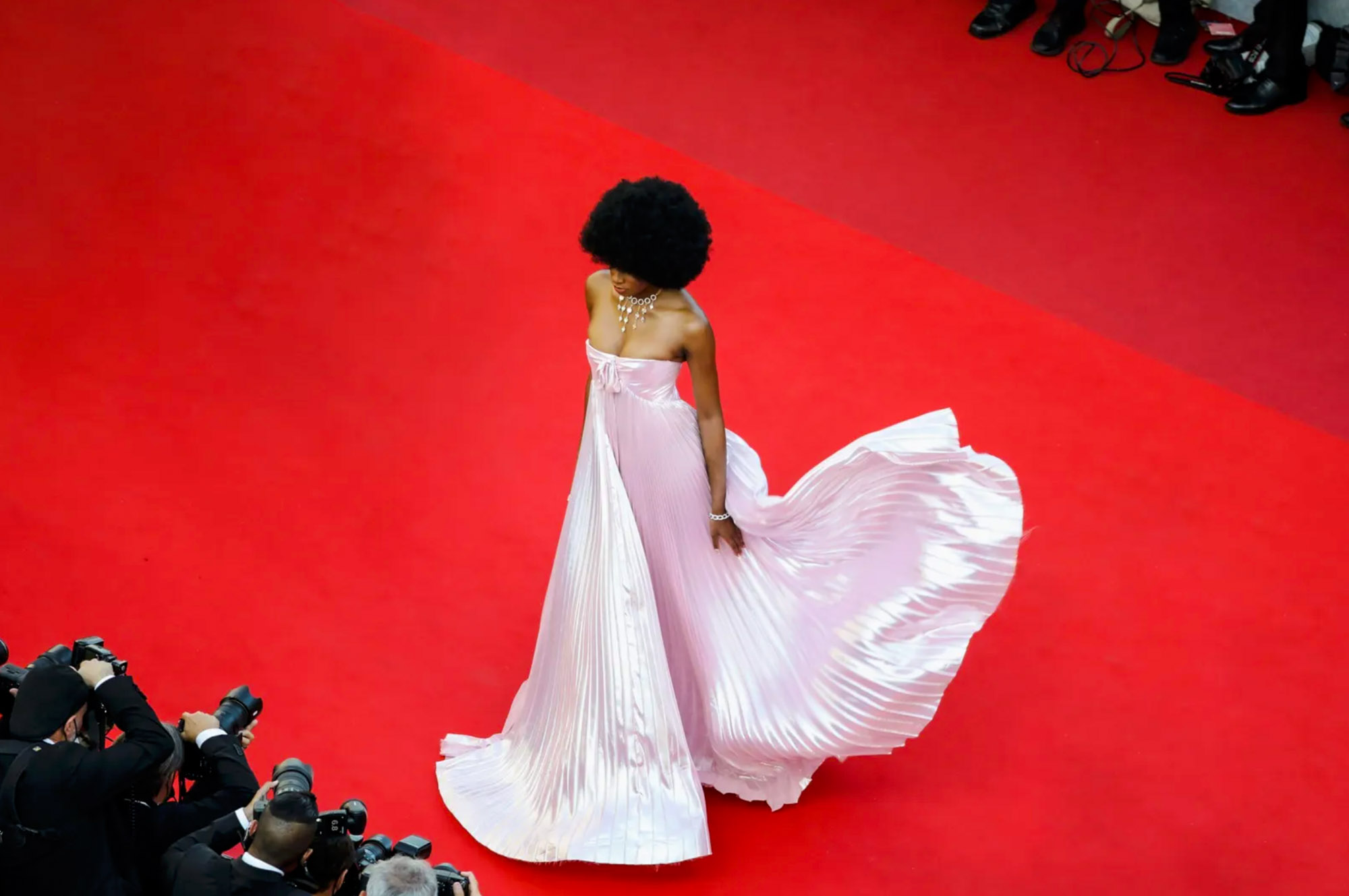
Walking the red carpet at Cannes
A new record of seven female directors were allowed in competition. Weirdly, even festival chief Thierry Frémaux – who once said he chooses films by quality not by gender – said Maïwann, the controversial director of the equally controversial Jeanne du Barry, could have been included. Jeanne du Barry is the perfect film to open the festival – costumed, silly and frothy – and singlehandedly bringing Johnny Depp back to acting after his hiatus in legal/domestic wrangles. Starring in the titular role, director Maïwann was in frame more than Depp’s King Louis XV. Never has Depp looked so bored, perking up only when dying of smallpox at the film’s end.
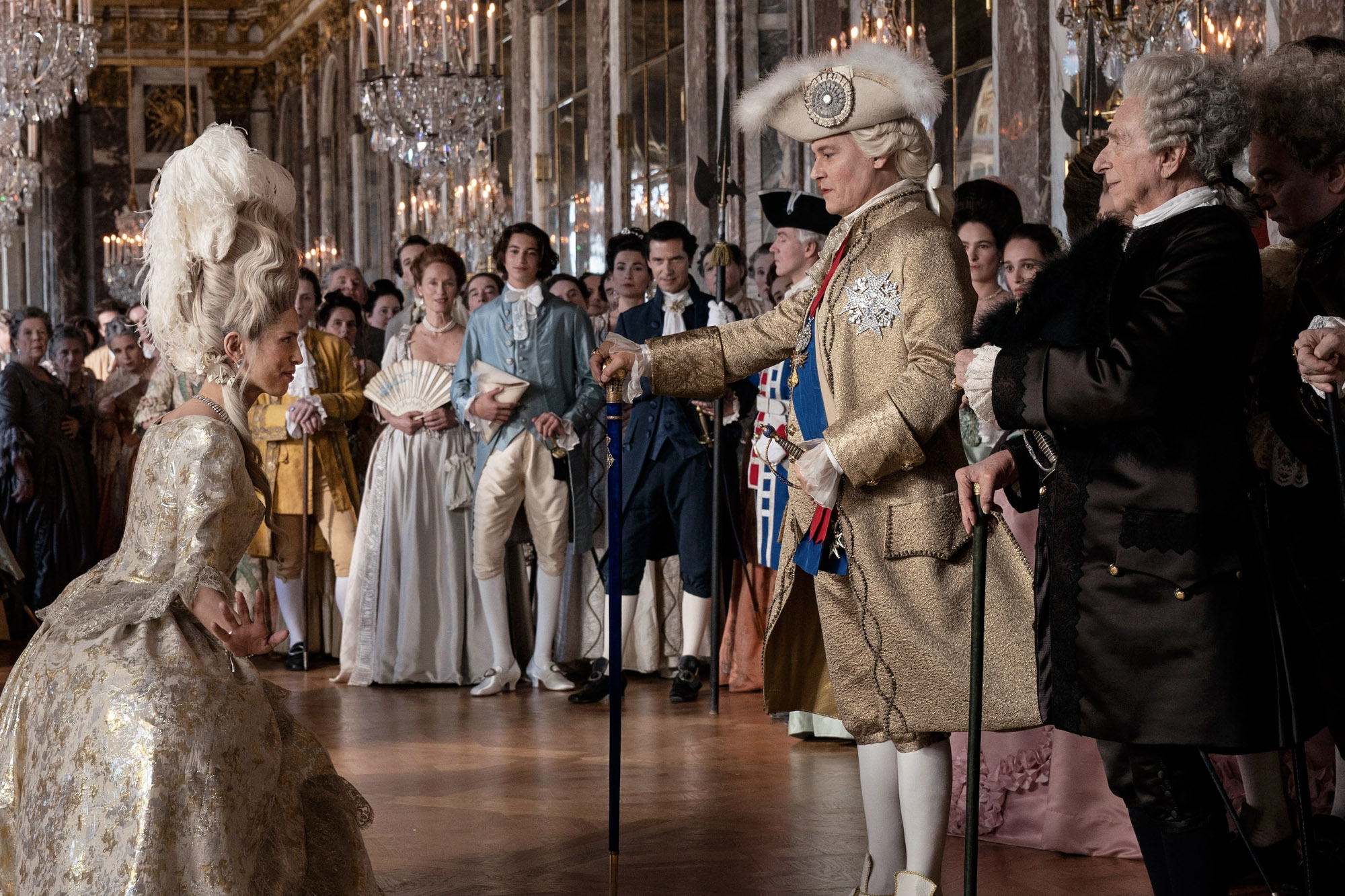
Jeanne du Barry
There were those who decried Depp’s appearance in the film, just as there are detractors of the festival as a whole. Cannes politics follow a predictable path with only a Gallic shrug at questionable things, like why the French distributor of the Palme d’Or winner is allowed to send the movie to film-embargoed Russia.
Despite nonsense conjured toujours at Cannes, the film programme was the strongest in years. The Palme d’Or was awarded to Anatomy of a Fall, director Justine Triet’s cerebral French thriller about an author (Sandra Hüller) proving her innocence in her husband’s death. It was one of the most talked about films at the festival, particularly in the queues at the Debussy and Grand Théâtre Lumière, the two largest cinemas of the Palais du Festival, where the vibe of the festival is best gauged. Few things bring out candid opinions more than queuing in the blazing sun or steady downpour.
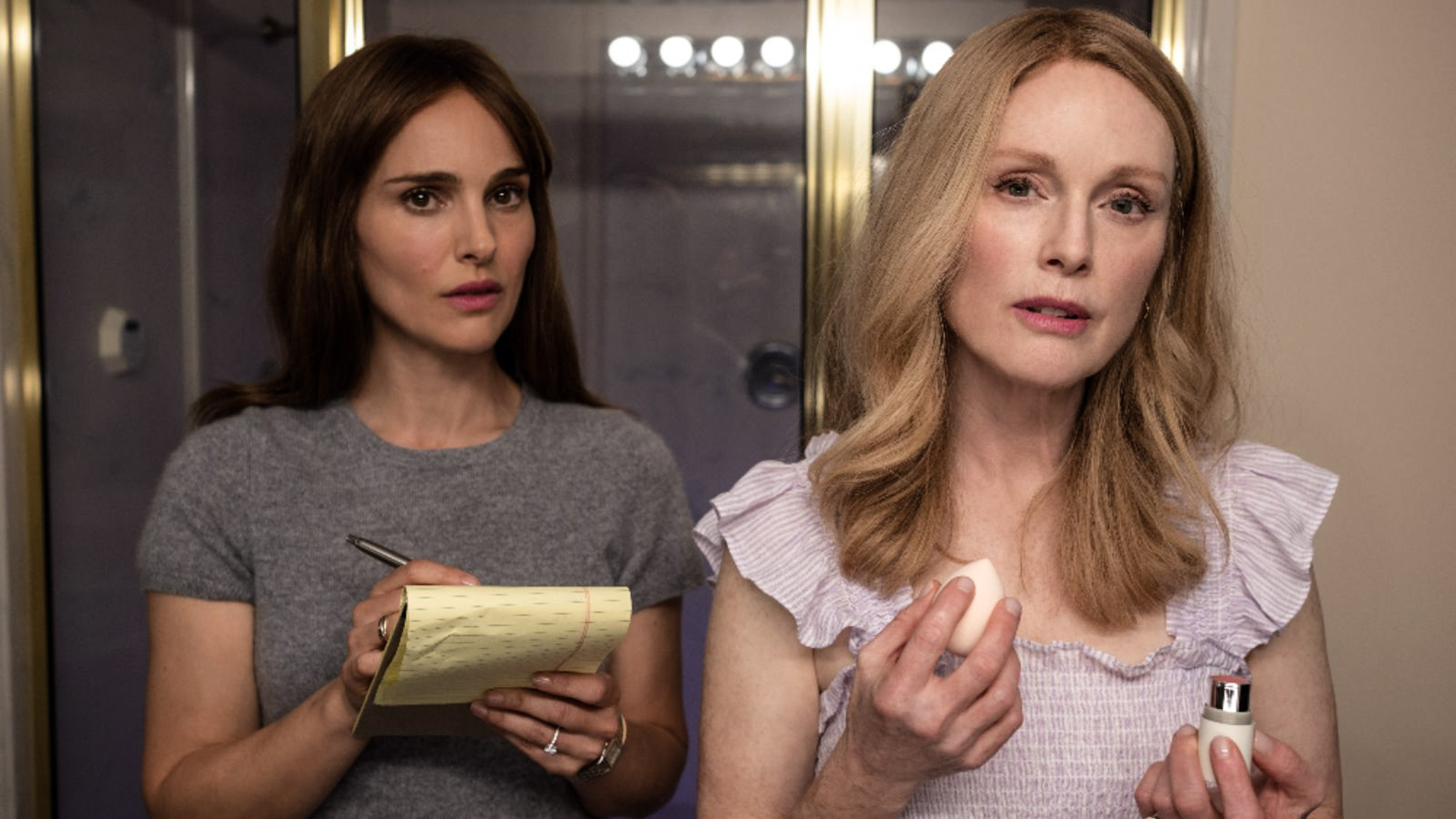
Todd Haynes’ May December
The Grand Prix winner, The Zone of Interest by British director Jonathan Glazer and based on the book by Martin Amis, is mysterious and puzzling. Ten years after Glazer’s last feature Under The Skin, its premiere in Cannes coincides with Amis’ death, giving The Zone of Interest an eerie aura. People who have seen it were left speechless by the story of a concentration camp commandant and his family living in earshot of continuous atrocities happening in the camp just over the adjacent wall. The Zone of Interest is a radical film – called by one critic “the first major work of art” seen at this festival. It won the In-Competition prize from FIPRESCI as well.
Some adored the wry satire Club Zero by Jessica Hausner. Others found Jean-Stéphane Sauvaire’s paramedic drama Black Flies starring Sean Penn to be sorely unbelievable. Happily, Netflix snapped up Todd Haynes’ hot house drama May December which focusses on a forbidden relationship and its fictional TV movie retelling. While opinions were divided on Wes Anderson’s candy coloured if empty Asteroid City, Marco Bellocchio’s period abduction/religious drama Kidnapped hit a hot spot with Italian attendees. Made for a mature audience – one with a bit of mileage – director Catherine Breillat’s Last Summer brought nailbiting to a new high, in this remade tale of moral failure.
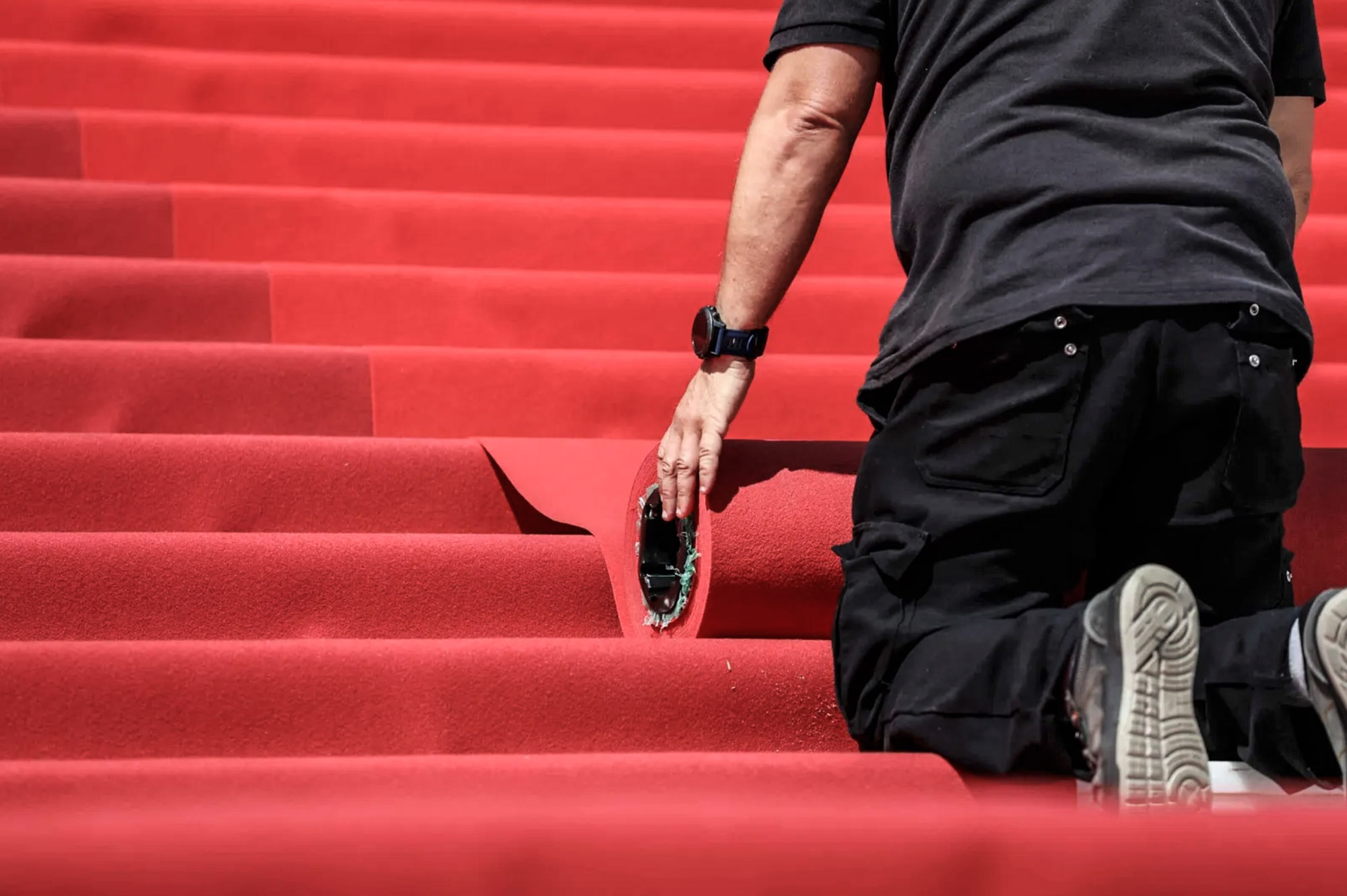
Cannes 2023
Away from the heavy hitters, the sidebar films are where sparks of genius may lie. Director’s Fortnight, for example, is famous for screening THX 1138 by George Lucas, Mean Streets by Martin Scorsese, Spike Lee’s She’s Gotta Have It as well as Jeanne Dielman, 23 Quai du Commerce, 1080 Bruxelles by Chantal Akerman. This year it featured the Camera d’Or winner Thien An Pham’s dreamy if religiously focussed Inside the Yellow Cocoon Shell (Bên Trong Vò Kén Vàng). The heartbreaking domestic tragedy In Flames by Zarrar Kahn and a rousing 16mm adventure tale by Weston Razooli Riddle of Fire were screened alongside Joanna Arnow’s Girls-style Seinfeld-vibed BDSM rom-dom-com The Feeling That The Time for Doing Something Has Passed: a comedy that puzzled some audience members but which had Americans snorting with laughter.
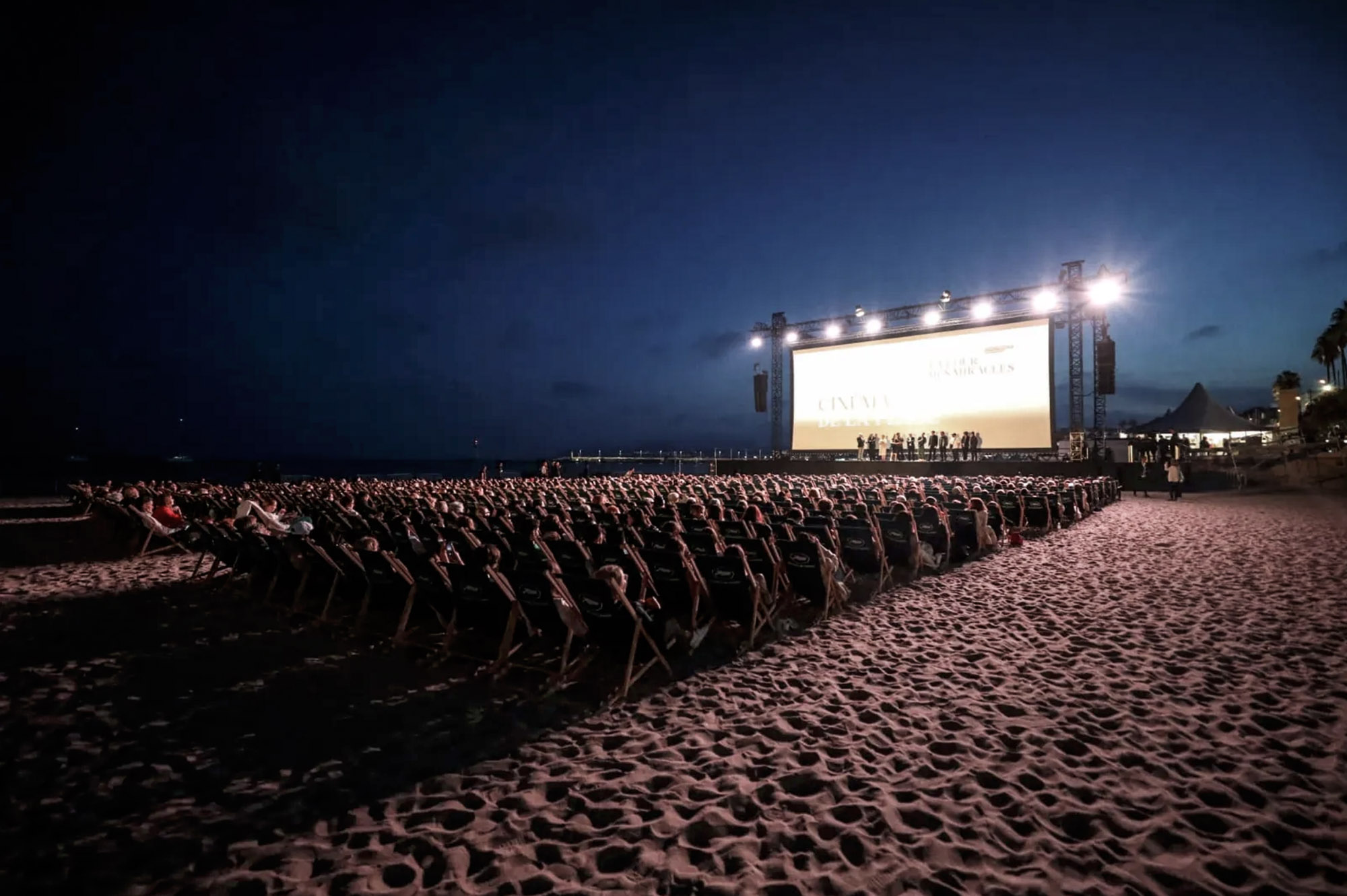
Outdoor screenings on the beach at Cannes
Arnow was one of many women directors at the festival as a whole. In other sections such as Un Certain Regard and Critics’ Week. Amanda Neil Eu’s endearing Malaysian body horror comedy Tiger Stripes, Paloma Sermon-Daï’s touching It’s Raining in the House (Il pleut dans la maison) and Iris Kaltenbäck’s intellectual The Rapture (Le Ravissement) would do well on general release. The winner of one prestigious FIPRESCI award was director Lillah Hallah’s Power Alley (Levante). A colourful take on political, familial, scholastic and personal power, Power Alley shows a queer community as normal. Seamlessly shot, Power Alley’s message about human rights is nevertheless fun to watch, assured and confident.
Of course, it’s not all serious on the Croisette. The cute UK-based award The Palm Dog – given to the festivals’ best canine performance – this year belonged to to Messi the dog from Anatomy of a Fall. Quentin Tarantino fans queued, as they like to do, for hours at the Theatre Croisette, roasting in the sun to get a glimpse of their hero introduce the surprise film Thunder Road. Despite its personality, the Cannes Film Festival feels optimistic in the middle of the WGA strike in Hollywood, with the shadow of AI threatening to drain humanity from the filmmaking process. Criticise it all you want, but Cannes is where we forget glamour is illusion. C